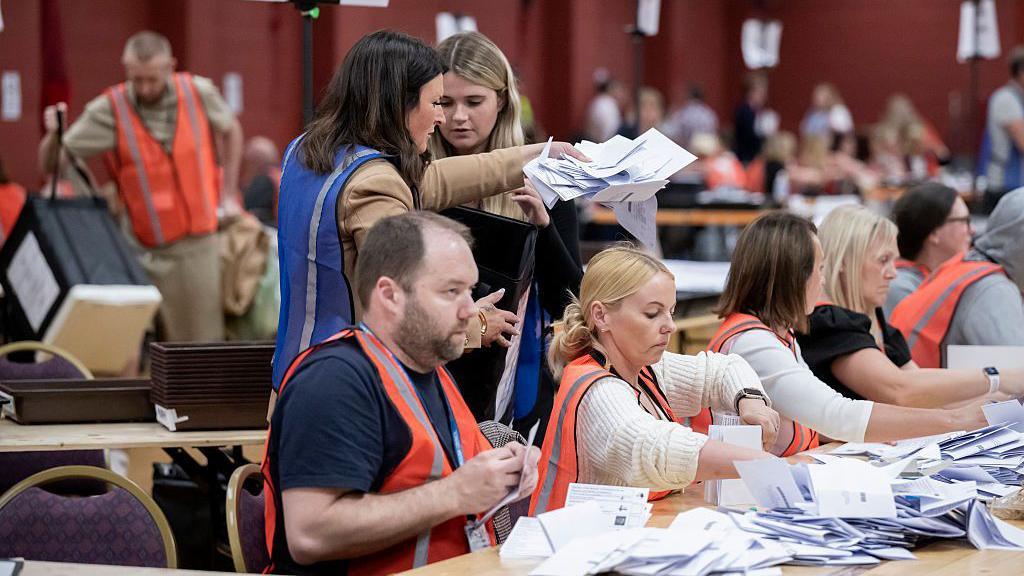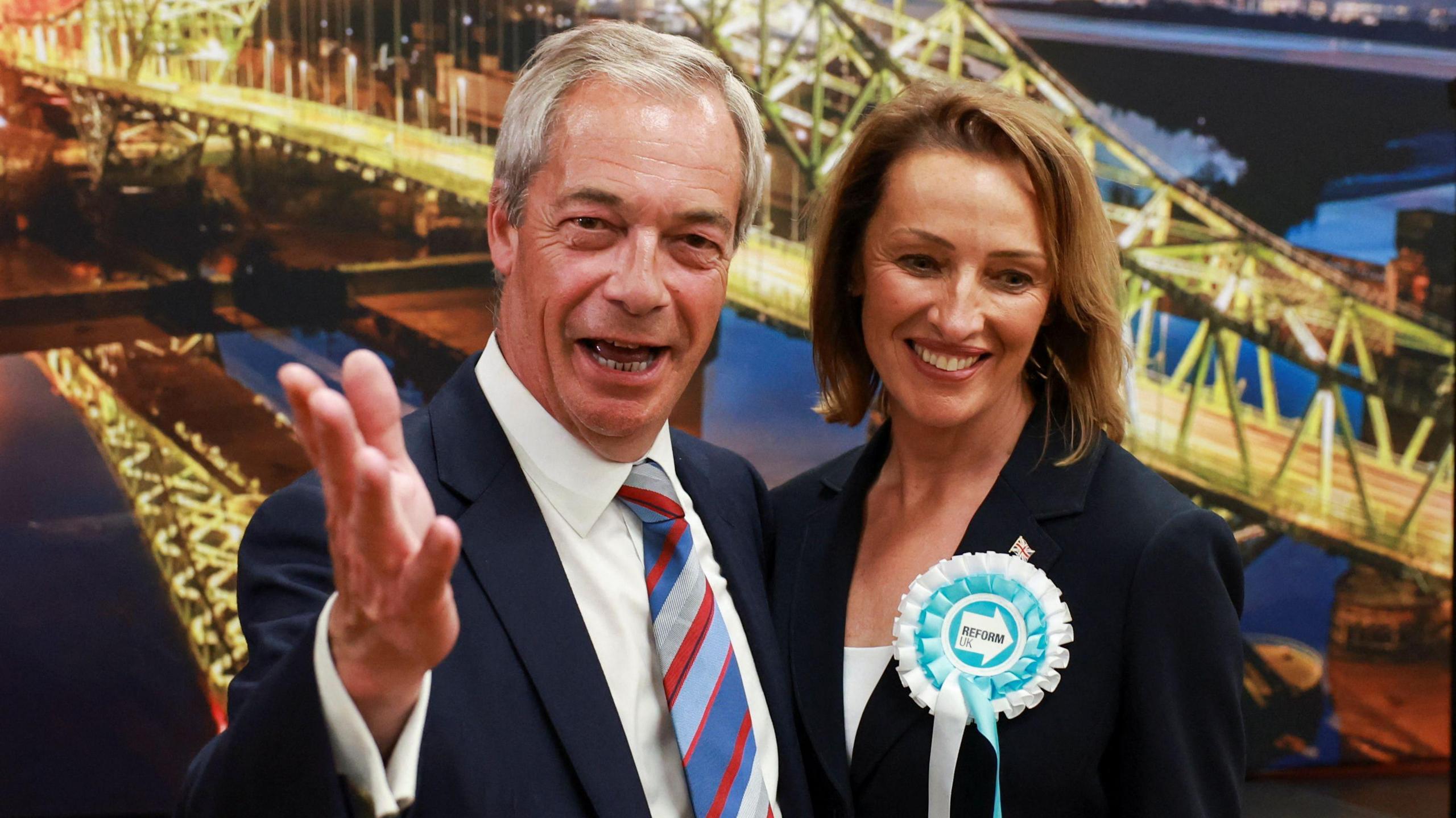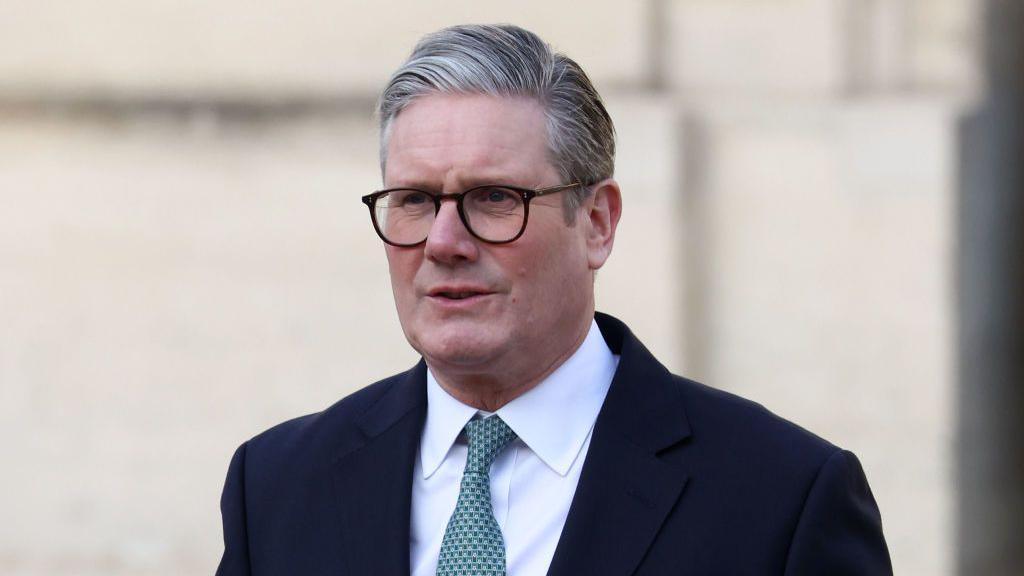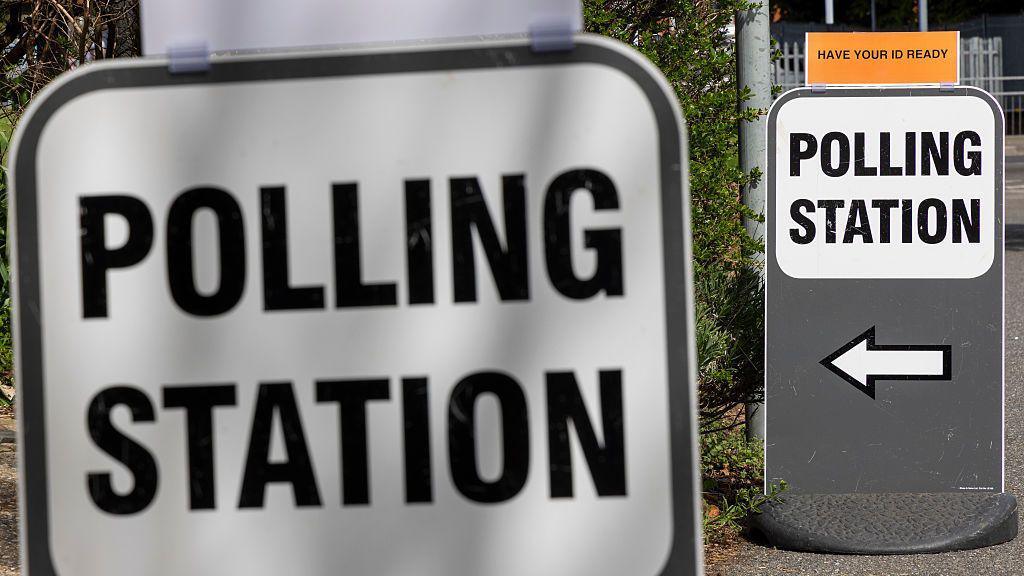Local elections 2025: What do the results mean?

- Published
Counting has come to an end and the results are in after millions of adults voted in elections in England and the Isles of Scilly on Thursday.
There was a big upset for Prime Minister Sir Keir Starmer's Labour Party after they narrowly lost a by-election in Runcorn and Helsby, in the north west of England.
Reform UK, led by Nigel Farage, won the contest by just six votes, in one of the closest parliamentary elections in history.
There were also six mayoral elections as well as local elections, which give adults the chance to choose who represents them in their local area.
There were no local elections in Scotland, Wales or Northern Ireland.
Keep reading to find out what happened.
More like this
What are local elections all about?
- Published29 April
What do Members of Parliament do?
- Published24 May 2024
What is a by-election and why do they happen?
- Published19 July 2023
How did the parties do in the local elections?

It was a big night for Reform party leader Nigel Farage and Runcorn and Helsby's new MP Sarah Pochin
In Runcorn and Helsby, adults were choosing their new Member of Parliament (MP), who will to go to Westminster and represent them in the House of Commons.
In the 2024 general election, Keir Starmer's Labour Party won in Runcorn and Helsby by thousands of votes.
This time Reform UK, led by Nigel Farage, overturned Labour's big majority and won the seat by just six votes.
After the results came in, Mr Farage said that it had been a "huge night for Reform".
Runcorn and Helsby's winning candidate Sarah Pochin thanked Mr Farage, saying he had inspired her to "stand up for this country".
Prime Minister Keir Starmer admitted the election result had been "disappointing".
"The message I take out of these elections is that we need to go further and we need to go faster on the change that people want to see," he added.

Six mayoral elections also took place across the country.
Reform won its first mayoral elections in Greater Lincolnshire and Hull and East Yorkshire.
Labour narrowly won three mayoral races in North Tyneside, the West of England and Doncaster - with Reform coming second in all three.
They lost the Cambridgeshire and Peterborough mayoralty to the Conservatives, coming in third after Reform.
Leader of the Conservative Party, Kemi Badenoch, shared disappointment with the night's results after her party lost hundreds of councillors from local councils.
"These were always going to be a very difficult set of elections coming off the high of 2021, and our historic defeat last year – and so it's proving," she wrote on social media.
She added she was "determined to win back trust".

Local elections also took place for more more than 1,600 councillors in 23 councils across England.
Nigel Farage's Reform party won 677 seats, which meant 10 of the 23 councils up for grabs.
They now have control of councils in Derbyshire, Kent, Lancashire, Lincolnshire, Nottinghamshire, Staffordshire, Doncaster, North Northamptonshire, Durham and West Northamptonshire.
Both Labour and the Conservatives suffered losses.
The Liberal Democrats won control of three councils.
Lib Dem leader Ed Davey said people who have traditionally voted for the Conservatives and thought they represented their values "realise that they no longer do that".
Council elections also took place in the Isles of Scilly.
In some parts of England, local elections were postponed because the government is planning to reorganise local councils.
No routine elections took place in Wales, Scotland or Northern Ireland.
What are local elections?
Watch: What are local elections all about?
In local elections, people choose who they want to run their villages, towns or cities.
There are different types of local authorities - often known as councils - but they are in charge of lots of things in our local areas, including things like schools, traffic and bin collections.
Usually all the main UK political parties have representatives standing in the local elections, along with many smaller parties and independent candidates.
Local elections are different to a general election, where people around the UK vote for a government to run the whole country.
